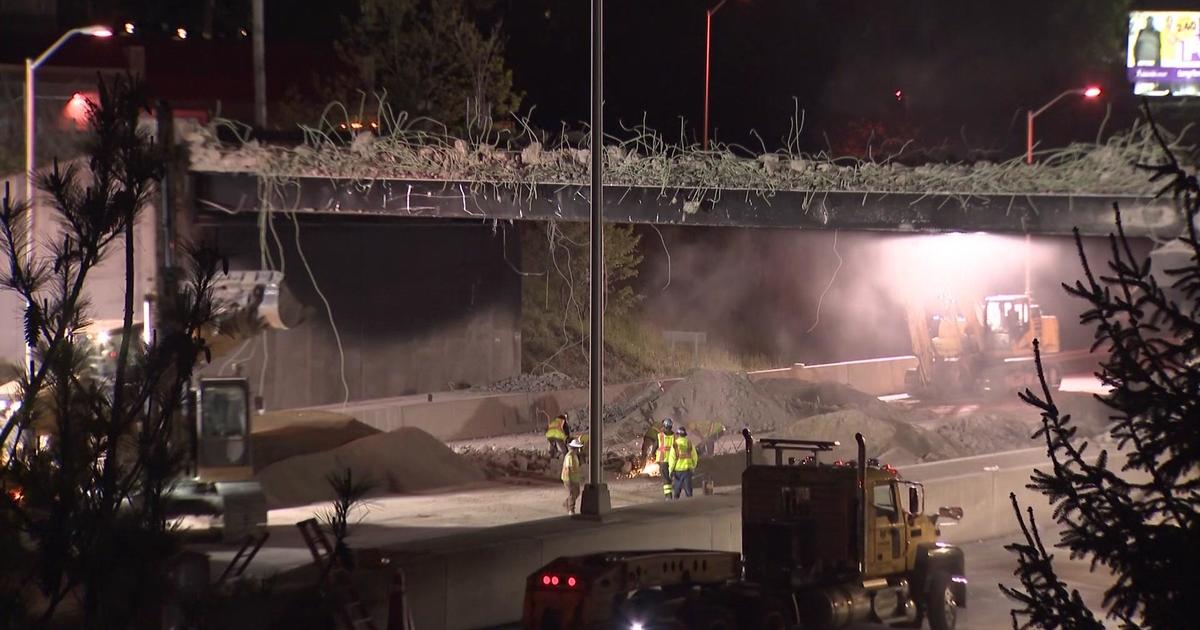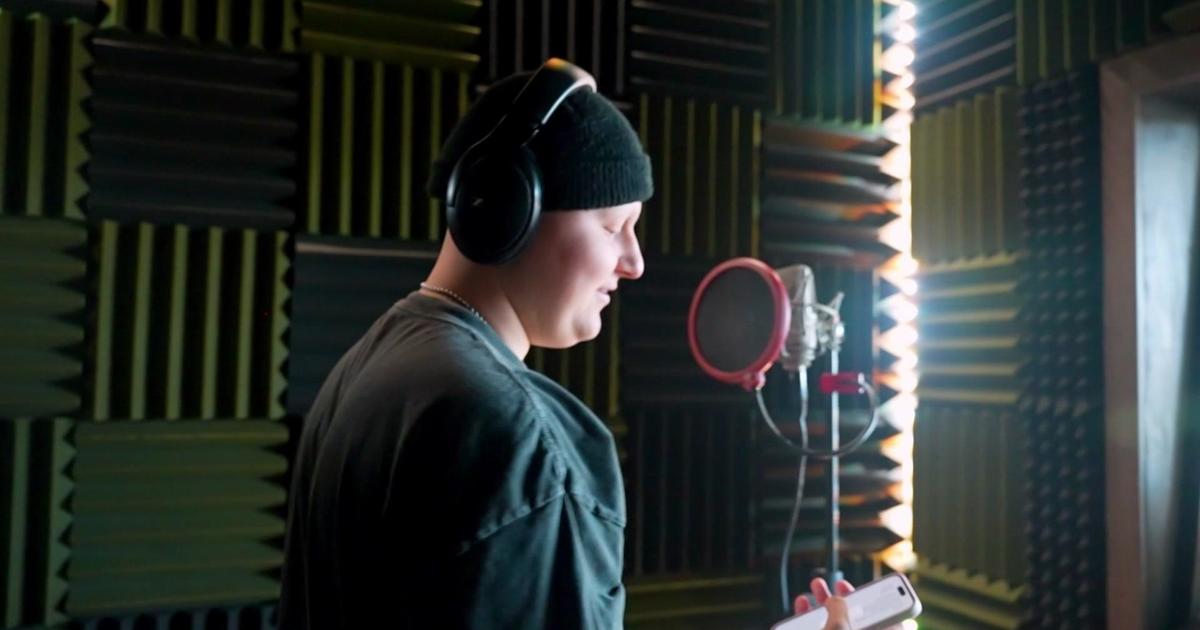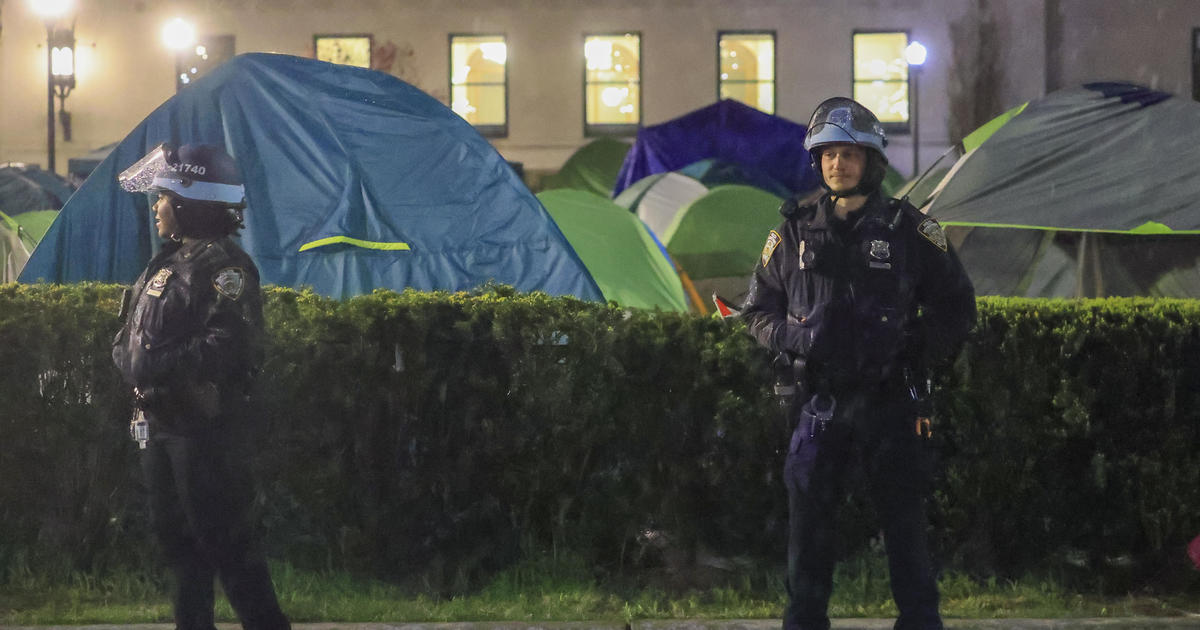How To Talk To Your Kids About Sandy Hook, Shootings And Safety In Schools
NEW YORK (CBSNewYork) -- For most Americans, the tragedy in Newtown, Conn., has been quite emotional and difficult to take in.
Even harder is explaining such a sensitive topic to your children.
The Couch turned to psychologist Susan Bartell for advice on just how to talk to your kids about what happened, and what to say to make them feel safe.
PHOTOS: Remembering The Victims Of The Sandy Hook Shooting
"Parents have to remember that their kids are fragile, and they're going to absorb everything that you say to them," Dr. Bartell said. "Your main goal...is to make kids feel safe."
While adults know this is not something we can guarantee, it is important that your children go through life with this sense of security.
"When they say 'I don't want to go to school," you can't say 'well, maybe I'll keep you home,'" Dr. Bartell said. "You have to say 'no, your school is safe, everyone there will take care of you, and you're going to have a great day.' And the truth is, they will, because the routine of school is what's going to help them move on."
Going through the motions of everyday life will be the best thing for children in the wake of the tragedy.
"The routine of school is what's going to help them move forward. Being with friends, being with their teacher, learning math and science...all of that is going to make them move on."
Some experts are saying it's a good idea for parents to drive children directly to school, instead of taking the bus, in the days following the events in Sandy Hook.
"You have to know your child," Dr. Bartlett said. "Some kids feel apprehensive about anything and everything, and if you drive them to school once, you're going to have a very hard time for the rest of the school year. Kids who never have a hard time, and are [now] apprehensive, you have to say, 'I'm going to drive you to school today, but tomorrow, you're back on the bus.'"
Manhattan clinical psychologist Dr. Amanda Zayde spoke with 1010 WINS' Sonia Rincon and said children who have questions about the Newtown tragedy need answers that are both brief and reassuring.
1010 WINS' Sonia Rincon Reports
Podcast
Here are some of the other tips she offered:
- Let kids take the lead on the conversation. Ask them questions and find out what they know.
"Allow them space to talk about their specific fears and concerns so that you can address them," Zayde said.
- Emphasize how rare school shootings are and how committed your children's teachers are to keeping them protected.
- Reassure children both verbally and non-verbally, which means being physically present and accompanying children to school and into the classroom if they are afraid.
"You want to make space for any feelings they might be having and then you want to normalize their feelings rather than minimize them. So instead of saying things like, 'There's no reason to be afraid,' you might want to consider saying something like, 'I can understand why you might feel afraid right now.'"
- Stick to routine and normal activities, which provide comfort for young children.
- Keep answers direct and brief, especially for younger children.
"Don't forget that this is overwhelming for all of us. Parents should take some time to process their own feelings about the tragedy so that you can be emotionally available to contain your child's feelings," said Zayde.
1010 WINS' Mona Rivera spoke with clinical psychologist Dr. Mary Rose Paster of Glen Cove. She offered the following advice:
- Emphasize that this is a very terrible, but also very rare incident. The "rare" part is essential. This will create some ease and provide reassurance that our communities are safe.
- Answer any questions as directly as you can. If you appear upset, do not deny this. Let your children know that this is a very sad thing and that your sadness will pass. Children need to know that sadness and grief can be faced without overwhelming or everlasting effects.
- Do not stay glued to the television when your children are present. The repetition of disastrous images can impact with a secondary traumatization to those who have viewed the images although they are not direct victims of disaster.
- Express gratitude that your family is safe and strong. If you children have a curiosity or fear, help them to become active in a meaningful way. Get together donations, say prayers (if you believe in this) or participate in some active meaningful way. Actions provide a sense of mastery, underscore gratitude and provide a model for giving to others and helping those in need. It reminds us that we do not have to remain helpless in the face of disaster.
- If the questions keep coming, acknowledge that yes all adults are not good and do not always do good things. However, we do all we can to protect our kids and keep them safe. Let them know that we always will.
- Those children and adults who are experiencing any intensity of anxiety, depression or grief can call the 800 Aetna insurance number for free on-phone counseling on how to deal with depression. You do not need to be an Aetna subscriber to receive this free service.



